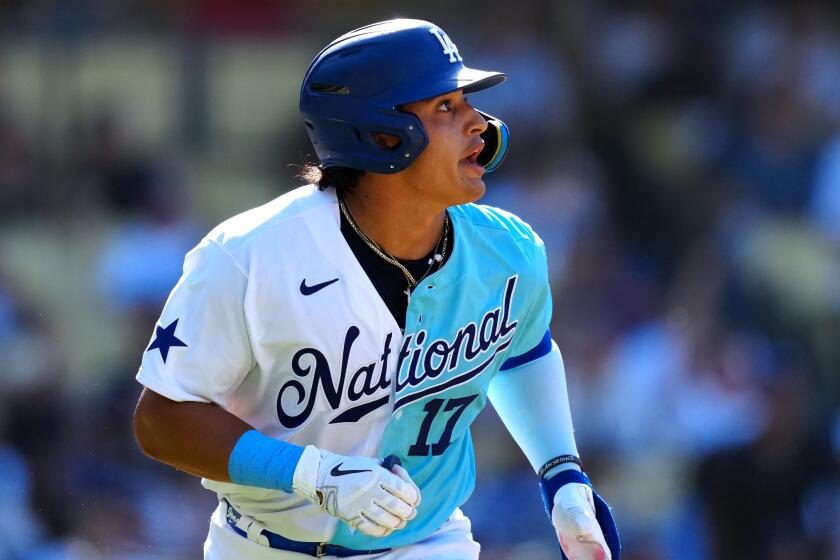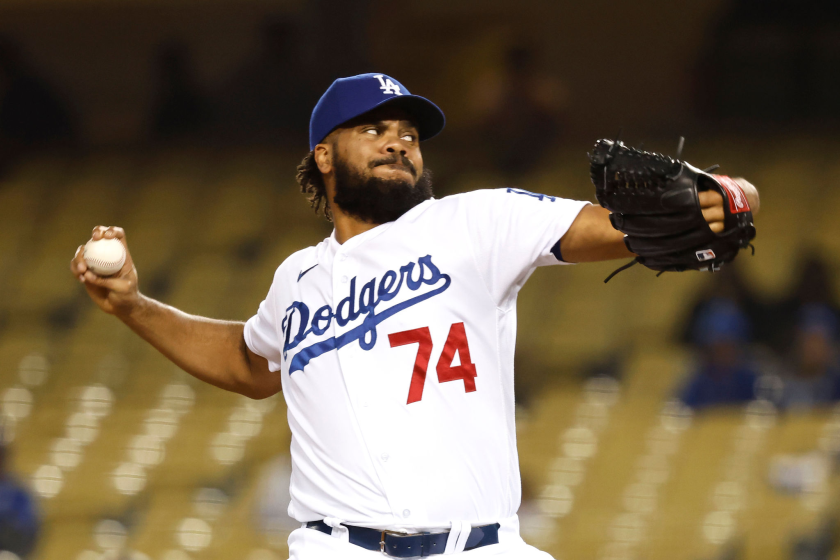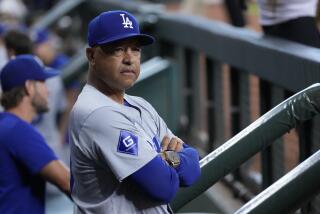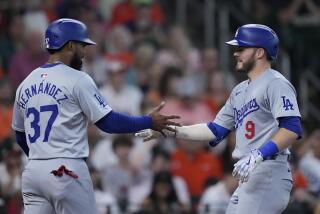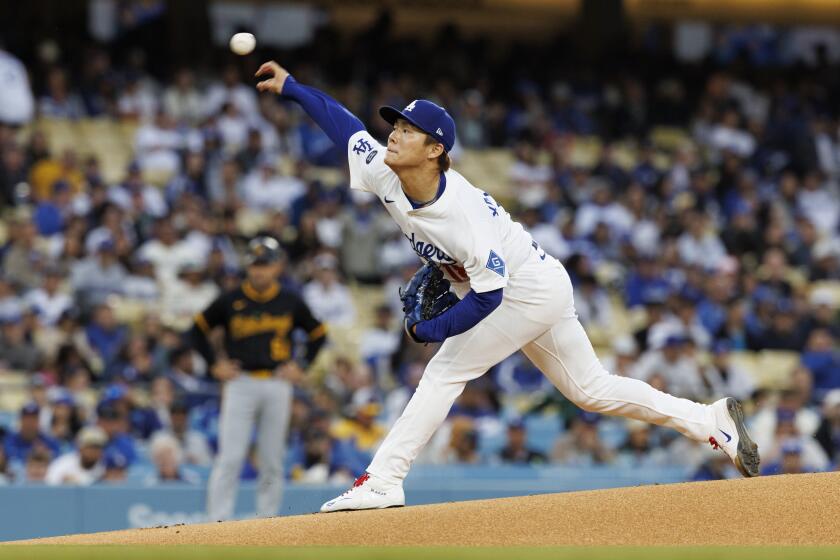The Dodgers have a flawed roster. Making the right trades could be harder than you think
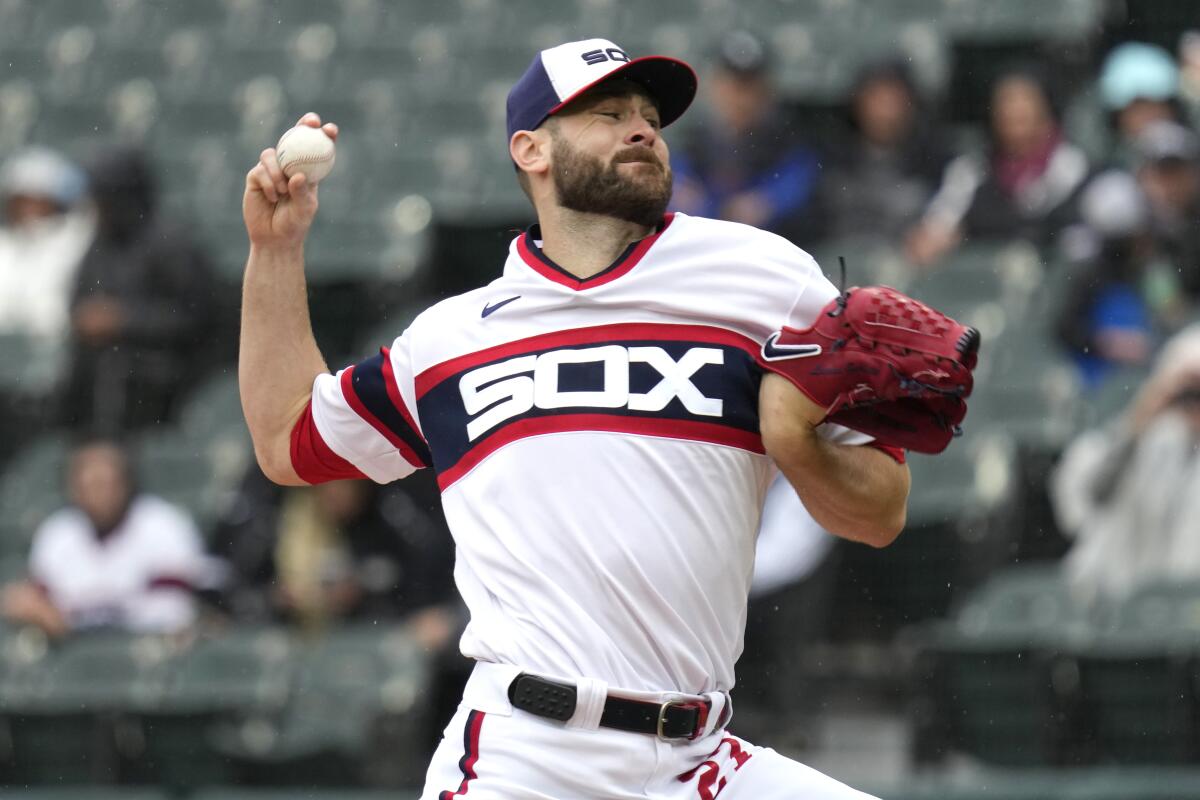
- Share via
With the Chicago White Sox in town this week, Dodgers fans — and probably some Dodgers themselves — have thrown on their quarter-zips to play general manager and analyze the possibilities. The Dodgers, a second-place club with championship hopes, have holes in their roster. The White Sox, a talented but underachieving bunch meandering through another disappointing season, have spackle to share. They’re obvious potential trade partners.
The White Sox are 30-39 after Wednesday’s 8-4 victory over the Dodgers. They’ve been a colossal letdown. Yet they’re just 5 1/2 games behind the Minnesota Twins for first place in the American League Central. And therein lies the issue for thirsty contenders batting their eyes at that White Sox roster loaded with established veterans: The White Sox might not quit on the season before the Aug. 1 trade deadline.
“They won’t be selling,” one rival team executive said. “Their division is terrible.”
It’s just mid-June. The White Sox have six weeks to play themselves out of contention. But the uncertainty is a microcosm of a potential problem for the Dodgers and other contenders seeking upgrades at the trade deadline.
It’s easy to deduce that the Dodgers — sitting in second place at 38-30, three games behind the surprising Arizona Diamondbacks — could use a few upgrades. Their bullpen has been shoddy. Their starting rotation has dealt with injuries. Their starting shortstop has a .508 on-base-plus-slugging percentage. The farm system, widely considered one of the best in the sport, is stocked with promising prospects to make multiple deals.
It’s just difficult, at this juncture, to identify where they would find the necessary reinforcements.
Between mediocrity in both Central divisions — the Pittsburgh Pirates lead the National League version with a 34-32 record — and the two additional wild card spots in each league added before last season supplying average (and worse) teams oxygen, this trade season may become a sellers’ market with few entries.
As it stands, just three teams are more than 10 games behind both the second wild card spot and their division leaders: the Oakland Athletics, Kansas City Royals and Detroit Tigers. The Washington Nationals and Colorado Rockies — rebuilding clubs without high expectations for this season — figure to sell if they don’t make significant progress in the standings. Other than that, well, there aren’t many teams left.
The St. Louis Cardinals could become a seller. They have been a disaster and own the worst record in the National League. But they expected to compete for a division title. Pulling the plug won’t be easy. The Chicago Cubs, just four games better than St. Louis and 4 1/2 games behind Pittsburgh, could join them.
Diego Cartaya entered the season as a consensus top-15 prospect. As with nearly every prospect at this stage, questions about Cartaya’s professional future linger.
Maybe teams choose to sell a player or two while hoping to remain in contention. Would the Cleveland Guardians, for example, move 2020 AL Cy Young Award winner Shane Bieber while still vying for the AL Central title?
The Milwaukee Brewers tried that strategy last summer, unloading All-Star closer Josh Hader while sitting in first place in the NL Central. The move angered the clubhouse and initiated a second-half collapse. Milwaukee missed the postseason. Threading the needle isn’t easy.
The Dodgers have played the same role for over a decade, viewing the deadline as a tool to boost their chances of winning the championship. This year, however, is different from most recent seasons.
The last time the Dodgers were in their current position — not in first place in the NL West with a real chance of not claiming a wild card spot in mid-June — was 2018. They were 36-32 on June 15, 2 1/2 games out of first place and four games behind the final wild card spot.
A month later, they addressed their most prominent need by acquiring All-Star Manny Machado from the Baltimore Orioles to replace the injured Corey Seager at shortstop. It was just the beginning. They also added relievers Dylan Floro, John Axford and Ryan Madson, second baseman Brian Dozier and first baseman David Freese. (Freese was acquired on Aug. 31, the day of the waiver trade deadline and a month after the non-waiver trade deadline. The waiver deadline no longer exists.)
That team wound up needing to win a one-game playoff against the Rockies for the division title before advancing to the World Series.
The Dodgers’ front office capitalized on a fruitful buyers’ market, completing trades with six different teams in July and August. Strong division leaders across the board and two fewer wild card spots produced more sellers. More sellers means more available players, which means more impactful players on the block.
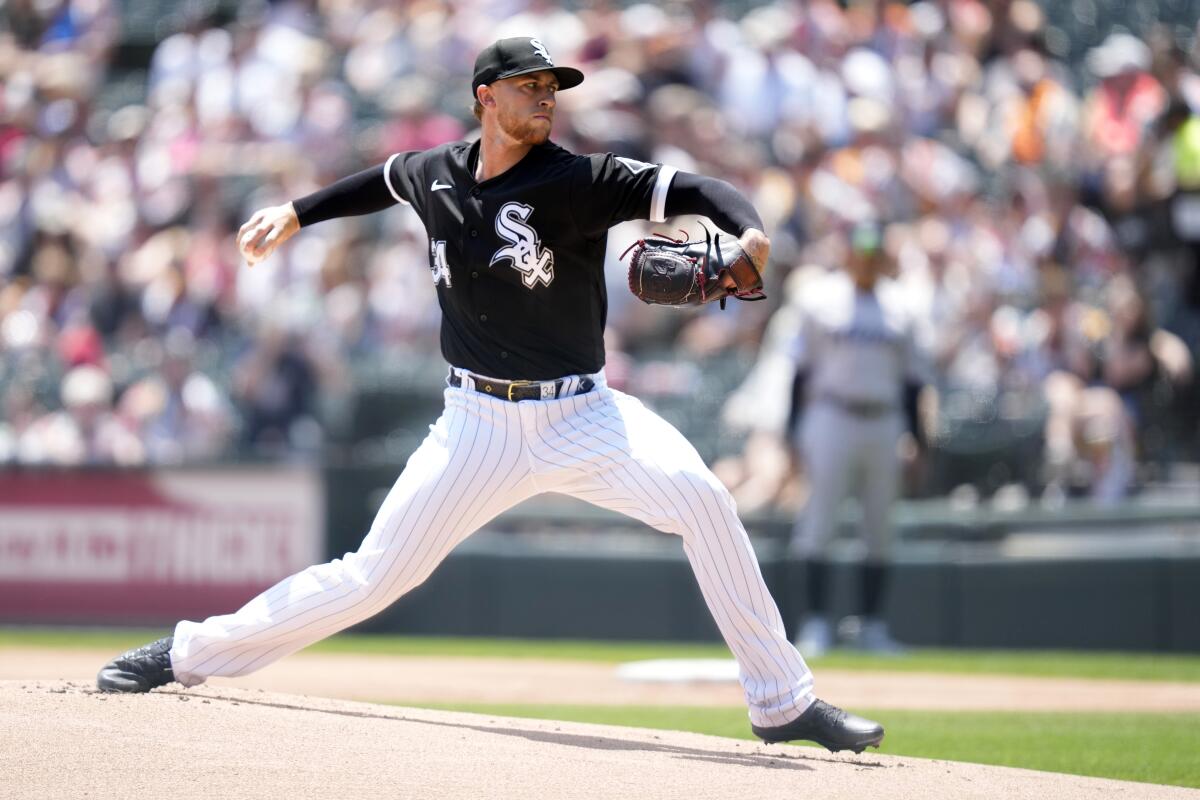
That scenario is still on the table this summer. There’s plenty of time for teams to plunge in the standings and into the sellers’ category. The White Sox would be among the teams atop the wish list for the sharks circling.
In some ways, the White Sox resemble the 2021 Nationals — a club with lofty expectations, shiny parts, and and a lusterless record minus the World Series pedigree and bonafide stars
That summer, several teams, including the Dodgers, picked at the Nationals’ carcass before the trade deadline. Max Scherzer, Trea Turner, Kyle Schwarber, Daniel Hudson, Jon Lester, Yan Gomes, Josh Harrison and Brad Hand were all flipped in a two-week span. A year later, the Nationals completed their fire sale by dealing Juan Soto.
The White Sox could undergo a similar makeover if they stick the for sale sign on their front lawn — starting with four starting pitchers who would each fit in the Dodgers’ rotation.
Lucas Giolito, a Harvard-Westlake product, has a 3.54 ERA in 14 starts and is slated to become a free agent this offseason. Dylan Cease has regressed from a breakout 2022 season in which he finished second in the AL Cy Young voting, but he’s just 27 and wouldn’t reach free agency until after the 2025 season.
Michael Kopech is a flamethrower with club control through 2025 and a 2.44 ERA in his last eight outings following a dreadful start to the year.
The Dodgers have traditionally had one of the best pitching staffs in baseball. Andrew Friedman needs to make a trade for that to happen this season.
Lance Lynn is having the worst season of his career — his ERA is an astronomical 6.75 — but the Dodgers need innings, he could provide them, and he has just a team option for $18 million for next season.
In the bullpen, Liam Hendriks, who returned from a battle with non-Hodgkin lymphoma last month, could stabilize the Dodgers’ beleaguered relief corps, giving the Dodgers an elite back-end option. That’s if his recent right elbow injury isn’t serious and he can reclaim his velocity from previous years. Joe Kelly, a fan favorite around these parts, Keynan Middleton and Kendall Graveman are other veteran bullpen alternatives.
At shortstop, Tim Anderson is having a dismal season with a dose of off-field distractions, but he would represent an offensive upgrade over the light-hitting Miguel Rojas. Rojas could then shift into the utility role he was supposed to assume before Gavin Lux’s season ended in spring training.
In short, the White Sox have players that, on paper, fit the Dodgers. The question for them — and several other middling clubs — is whether they’ll be open for business.
More to Read
Are you a true-blue fan?
Get our Dodgers Dugout newsletter for insights, news and much more.
You may occasionally receive promotional content from the Los Angeles Times.

